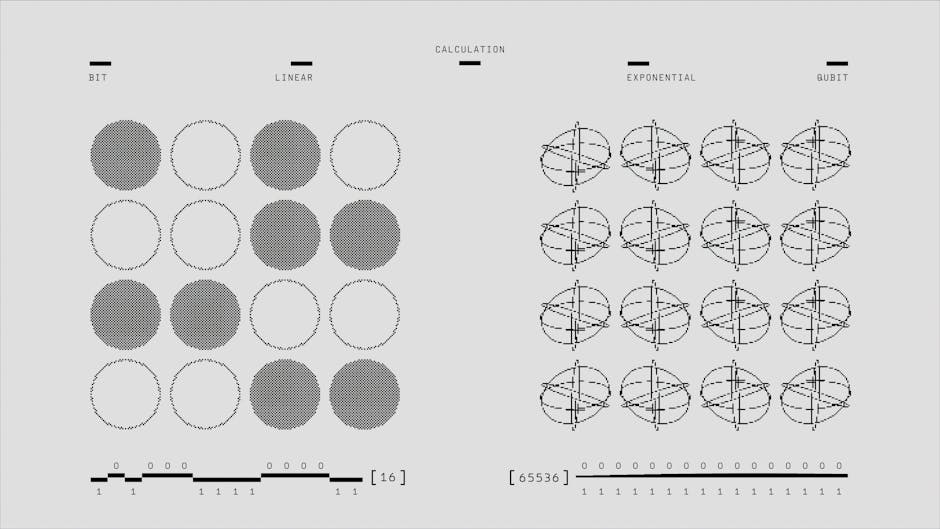Exploring Quantum Computing’s Potential
Have you ever wondered how computers could become even faster and smarter? Quantum computing is the next big thing, and it’s not just for scientists. It has the potential to change the way we solve problems, from medicine to climate change. Lets dive into what quantum computing is and what it means for our future.
What is Quantum Computing?

At it’s core, quantum computing uses the principles of quantum mechanics to process information. Traditional computers use bits as the smallest unit of data, which can either be a 0 or a 1. Quantum computers, however, use qubits.
A qubit can be both 0 and 1 at the same time, thanks to a property called superposition. This means quantum computers can handle a vast amount of data all at once. Imagine trying to find a needle in a haystack. A traditional computer would search through each piece of hay one by one. A quantum computer would explore many paths simultaneously, making it much faster.
Why Does Quantum Computing Matter?

You might ask, What can quantum computing do that my laptop can’t? The answer lies in it’s power to solve complex problems quickly. Here are a few areas where quantum computing could make a huge difference:
- Medicine: Discovering new drugs by simulating molecular interactions.
- Finance: Optimizing portfolios and managing risk more effectively.
- Climate Change: Modeling climate systems to predict changes more accurately.
- Cryptography: Breaking traditional encryption methods, making data security a priority.
Experts predict that quantum computing could revolutionize these fields, unlocking solutions we can’t even imagine yet.
How Does Quantum Computing Work?

To understand how quantum computers work, we need to look at a couple of key concepts: superposition and entanglement.
What is Superposition?
Superposition allows qubits to exist in multiple states at once. Think of it like spinning a coin. While it’s spinning, it’s not just heads or tails; it’s both! Only when you catch the coin does it land on one side. This ability to be in multiple states gives quantum computers their incredible power.
What is Entanglement?
Entanglement is another fascinating aspect of quantum mechanics. When qubits become entangled, the state of one qubit can depend on the state of another, no matter how far apart they are. it’s like having a pair of magic dice. If you roll one and it lands on six, the other one will automatically show the same number, even if it’s in another room!
This property enables quantum computers to perform complex calculations at lightning speed, as they can transmit information between qubits almost instantaneously.
What are the Challenges of Quantum Computing?

Despite it’s potential, quantum computing is still in it’s early stages. Here are some challenges that researchers face:
- Fragility: Qubits are sensitive to their environments, which can cause errors in calculations.
- Scalability: Building a large number of stable qubits is a complex task.
- Cost: Quantum computers are currently very expensive to create and maintain.
Addressing these challenges takes time, but companies and universities are actively working on solutions.
Who is Leading the Charge in Quantum Computing?
Many big names in tech are investing in quantum computing. Companies like IBM, Google, and Microsoft are at the forefront. They are developing powerful quantum computers and creating software to run on them.
For example, IBM’s Quantum Experience lets anyone access their quantum computers through the cloud. This approach encourages innovation and collaboration. As more people experiment with quantum computing, we’ll see even more exciting advancements.
Can Quantum Computing Change the World?
Absolutely! Quantum computing has the potential to solve problems that are currently beyond our reach. Here are a few areas where it could make a significant impact:
- Healthcare: Imagine faster diagnoses and personalized medicine tailored to your genetic makeup.
- Energy: Better models for renewable energy sources could lead to more sustainable solutions.
- Artificial Intelligence: Enhanced AI algorithms could lead to smarter machines that learn more efficiently.
The possibilities are immense. Quantum computing could help us tackle the world’s biggest challenges.
What Should You Keep an Eye On?
If you’re interested in quantum computing, here are a few things to watch:
- Breakthroughs in technology: Keep an eye out for news on new qubit designs and error correction methods.
- Applications: Look for real-world applications that emerge from research and development.
- Education: Universities are starting courses on quantum computing. These programs will help prepare the next generation of innovators.
Staying informed will help you understand how this technology evolves and it’s impact on our lives.
Conclusion: Why You Should Care About Quantum Computing
Quantum computing might sound like science fiction, but it’s becoming a reality. it’s potential to transform industries and solve complex problems is immense. As this technology develops, it will change everything from how we treat diseases to how we secure our data.
So, what can you do? Stay curious! Read about quantum computing, follow technology news, and consider the implications for your life and career. The future is bright, and being informed puts you at the forefront of this exciting journey.
For more in-depth information, check out [this article from IBM](https://www.ibm.com/quantum-computing). And if you’re interested in how technology shapes our daily lives, you might enjoy our post on the impact of AI on society.



